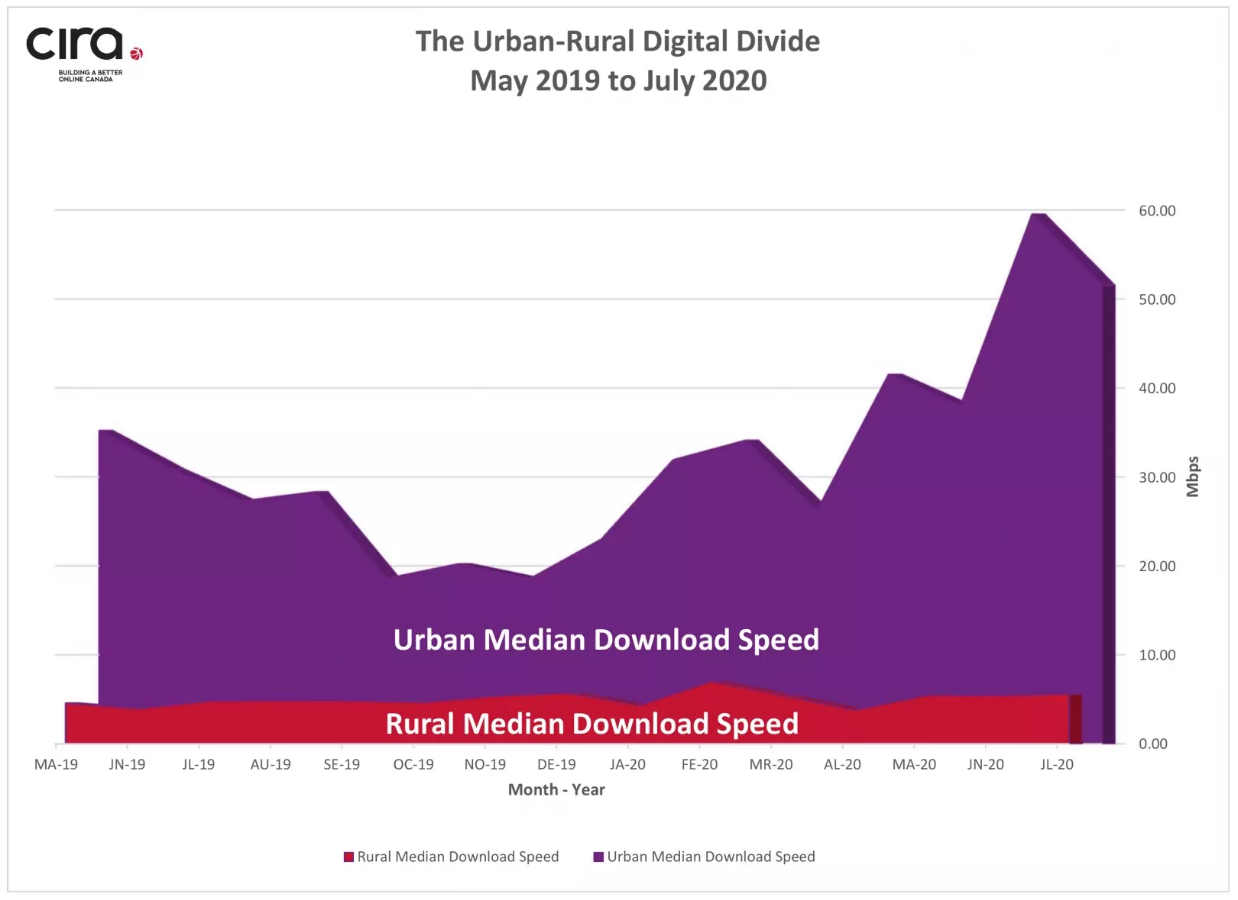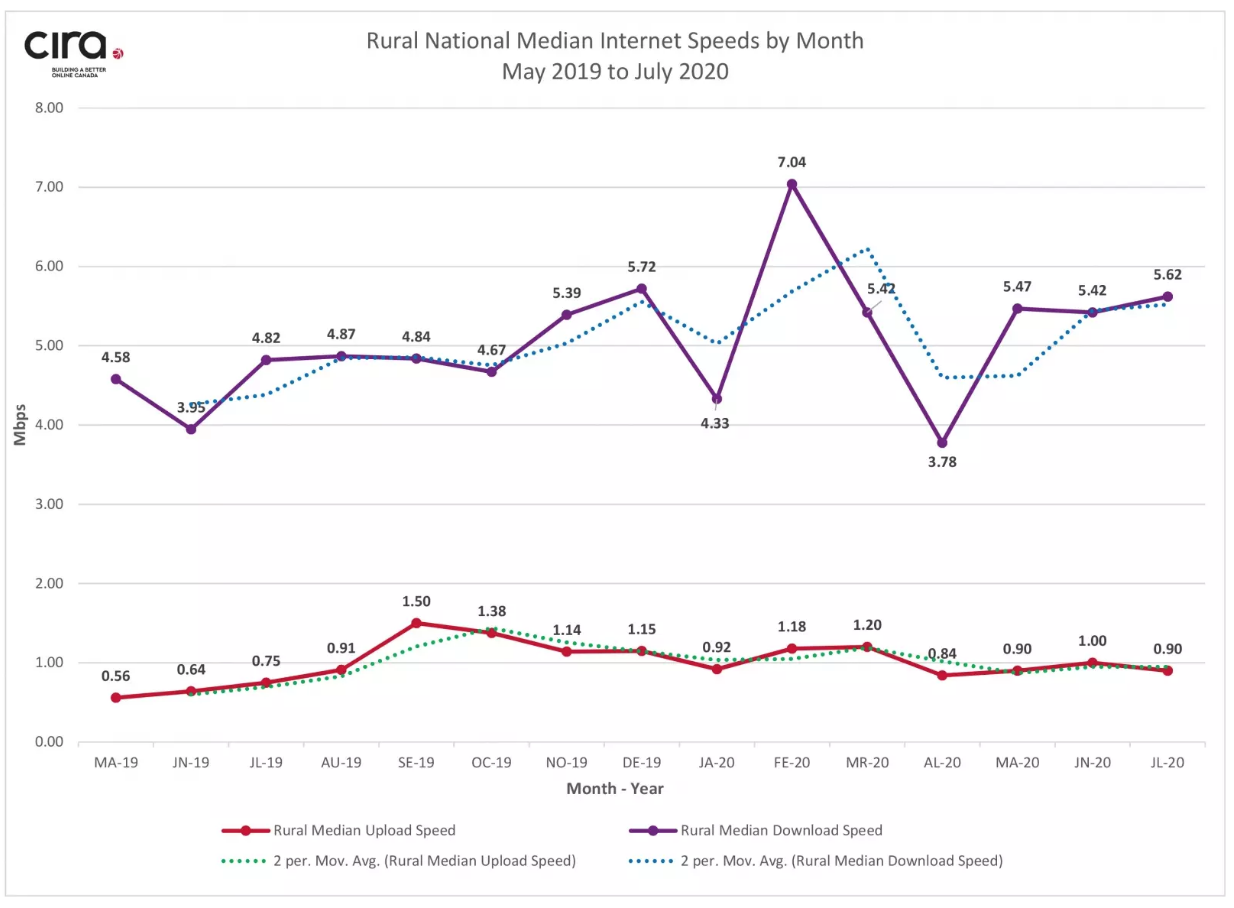
A new report released by the Canadian Internet Registration Authority (CIRA) reveals that a digital divide persists in Canada during the COVID-19 pandemic.
The report outlines that in July, Canadians experienced nearly 10 times slower download speeds compared to urban internet users. CIRA outlines that urban internet performance has steadily improved and outpaced rural improvements since the pandemic began.
Median rural download speeds in July were measured at 5.62Mbps, compared to 51.54Mbps in urban Canada. The report outlines that this is a difference of approximately 10 times.
The data also shows that urban internet users saw an average download speed increase of about 25Mbps between March and July, while rural speeds have not notably improved.
“Measured urban download speeds have nearly doubled since the start of the pandemic. In March, the median download speed was 26.16 Mbps, compared to 51.54 Mbps in July, the report outlines.
CIRA outlines that since the pandemic began, median download speeds have plateaued around 5.5Mbps for rural internet users.
Further, the data reveals that median upload speeds for rural users are consistently 10 times slower than urban speeds, on average, and have been on the decline since the pandemic began. For instance, it has fallen from 1.2Mbps in March to 0.90Mbps in July.
“The COVID-19 pandemic has put Canada’s reliance on high-quality broadband into sharp relief, and, unfortunately, today’s data shows that rural internet users are falling behind in terms of speed and quality,” said CIRA president and CEO Byron Holland, in a press release.
“We urge the federal government, CRTC, and local levels of government to expedite the rollout of broadband funding to help ensure all Canadians have access to faster internet as soon as possible,” Holland stated.
Marie-Pier Baril, the press secretary for Rural Economic Development Minister Maryam Monsef told MobileSyrup in an email that the government is working on launching its $1.7 billion Universal Broadband Fund soon.
“The Government is working aggressively to launch the Universal Broadband Fund soon, which will support whatever network infrastructure is needed to best meet rural and remote connectivity needs, including fibre, fixed wireless, and satellite technologies depending on the region,” Baril stated.
The Universal Broadband Fund will support broadband projects across the country and is designed to meet the unique needs of rural and remote communities.
CIRA’s data is based on test results generated between May 2019 and July 2020 from a total of 130,794 urban tests and 56,982 rural tests through CIRA’s ‘Internet Performance Test.’
The test uses nodes located in internet exchange points in ‘Tier 1 Canadian cities’ instead of within an internet service provider’s (ISP) own network architecture. CIRA says this allows it to measure the actual performance of an internet connection and closely represent the true internet experience of Canadian users.
CIRA outlines that since the COVID-19 pandemic started, it has partnered with 18 new communities to assess the quality of local broadband connectivity using its Internet Performance Test.
It notes that there are nearly 150 communities in total working with CIRA to measure internet performance across Canada.
Image credit: Canadian Internet Registration Authority
MobileSyrup may earn a commission from purchases made via our links, which helps fund the journalism we provide free on our website. These links do not influence our editorial content. Support us here.




